In the streets of Tunisia's ancient medina is a gateway called Bab Bhar—the Gate of the Sea. Standing at the intersection of old and new, this portal serves as both metaphor and muse for bassist Marwan Allam's debut album. Leading a quartet that includes saxophonist Yacine Boularès, pianist Chris McCarthy, and drummer Samvel Sarkisyan, Allam accomplishes something special with Bab Bhar. His music creates passages between worlds: between the improvisational depths of jazz and the trance-like repetitions of Arabic music, between the methodical discipline of Western classical training and the oral traditions of North African musical mentorship.
The music pulses with the rhythmic patterns of Btayihi, Chaabi, and Bounawara, translated through the modern jazz quartet's vocabulary. Allam's innovative approach to the double bass—detuned and reimagined to channel the resonance of the traditional gimbri—creates a fascinating timbral bridge between North African traditions and contemporary jazz. The tenor saxophone weaves through the pieces like a human voice, spelling out African pentatonic scales and Andalusian maqams with careful attention to the nuanced syncopations that characterize Tunisian musical expression.
This sophisticated cultural synthesis reflects Allam's artistic evolution, from his early days as a nationally acclaimed musician in Tunisia to his transformative years at the Prince Claus Conservatory in the Netherlands and finally to New York City, where he has collaborated with luminaries like Marc Cary, Freddie Bryant, and Tarek Yamani. Allam's musical evolution embodies the cross-pollination that has characterized his homeland for millennia, where Berber, Arab, Roman, Turkish, and Andalusian influences have created a uniquely rich cultural tapestry. Allam's exploration of his heritage through jazz doesn't exoticize these traditions but engages in a deeper dialogue between them.
Marwan Allam recently spoke to Lawrence Peryer on the Spotlight On podcast, discussing a series of illuminating topics. Allam dives deep into the how and why of his extraordinary album Bab Bhar, his path of musical discovery as a young musician in Tunisia, what makes Arabic music so unique, and how more American-born musicians embrace these North African musical traditions. The conversation has been edited for length and clarity.
The Door Remains
Lawrence Peryer: You're about two months past the new record's release. How is everything going?
Marwan Allam: It's been great. We had the release show at Joe's Pub at the Public Theater in New York City on July 9, and the album came out a couple of weeks later. I released the single first, then the full album. Since I'm independent, I handle everything myself. I have the right people to get the album where it should be, but I'm dealing with writing music, performing, and production. It sometimes gets overwhelming, though the more we do it, the faster it gets.
Lawrence: Sure, you learn all the processes, steps, and tasks.
Marwan: It gets faster, yes. Before, people didn't do all the steps—they hired others—but now everything is getting expensive, and musicians need to learn the entrepreneurial side of music. We must all be composers, arrangers, skilled instrumentalists, and entrepreneurs. You have to complete that side to be a successful musician.
Lawrence: How do you feel about that? Is it interesting to you, or is it just drudgery?
Marwan: Honestly, I hadn't been focusing on that side until I faced the reality that I needed to release an album and deal with the market. You know your budget and situation and are forced to learn. I know how things work as a sideman, but it's a completely different experience when you're the band leader. When it's your project, it's very different than being just a musician.

Lawrence: What's the significance of Bab Bhar, the album's title?
Marwan: It's both metaphoric and symbolic. I grew up in a country with multicultural diversity. We have different ethnicities but also tolerate the modern and the old. The old city used to be surrounded by a castle wall. Though the wall is gone, the door remains, connecting the old and new cities. That connection brings me back to my roots as a Tunisian.
In the old city, people maintain traditional jobs, such as tailors, hat makers, and clothing makers. You go to the old city and meet somebody who seems from three centuries ago, doing something by hand with no technology, then you take the subway and see tech people. That kind of modern and old—it's a feeling inside you. That's something I have to bring into the music I play.
"You Should Play Bass."
Marwan: I discovered jazz early, maybe when I was fifteen or sixteen, but I was also into traditional North African music. In Tunisia's music schools, we don't have jazz education—just classical or traditional music, which is beautiful.
Lawrence: How did you come across jazz as a young person if it wasn't in the schools?
Marwan: It didn't come right away. I discovered guitar music first. My brother happened to have a guitar at home that he bought because he thought it was cool. I started noodling with him. Then my mom said, "If you're into guitar, there's a flamenco show in Carthage," the symbolic city of Tunisia with all its Roman heritage.
I went to see this concert and was mesmerized. I saw the guitarist playing flamenco in those bulerías, and the feeling of flamenco music is close to North African music. I wanted to be like that. My mother put me in the Spanish Cultural Center, where they offered classical and flamenco guitar lessons. That's how it started.
They taught me to read music, and I was into anything that sounded good. Then I discovered B.B. King and the blues, Jimi Hendrix, and Stevie Ray Vaughan. I was really into blues, so I bought an electric guitar. Then, I discovered George Benson and Robben Ford.
That touch between jazz and blues, the pentatonics—it was so complicated but so good. My ears weren't developed yet; I came from a country with no harmony in music. Slowly, my ears started to develop, and I began to listen to chord progressions and everything, learning about Western music forms.
We had a guy in Tunisia who was good at jazz. He was one of the pioneers; everybody went to his house to learn about jazz. So I went to ask for a lesson. I knocked on his door and said, "Excuse me, I just want a guitar lesson." He became my teacher and later my friend.
Then he told me, "You know what? You should play bass." He gave me a Jaco Pastorius CD and a compilation CD with Stanley Clarke, Ron Carter, and all the great bass players. I listened to that CD ten times a day or something—Victor Bailey, all that beautiful electric bass stuff.
Lawrence: Yeah, melodic bass.
Marwan: So good. Even now, I feel nostalgic about that music.
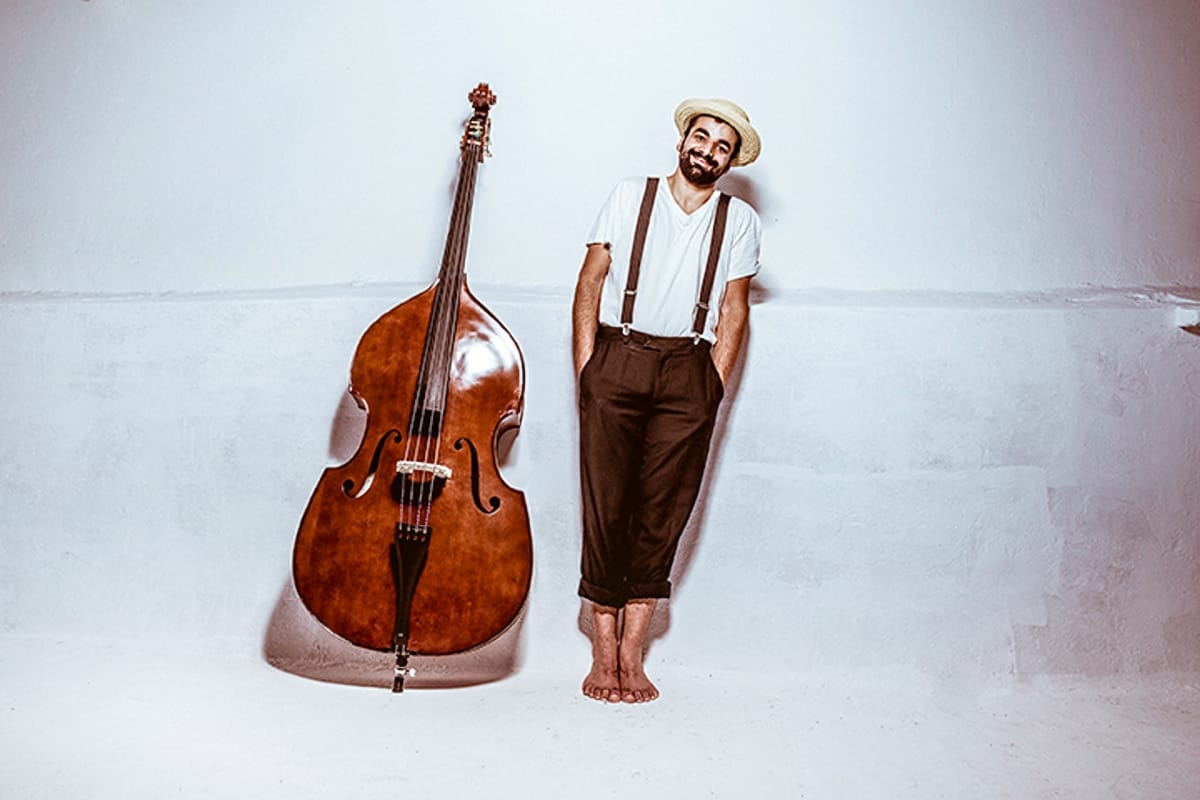
Lawrence: What do you think he saw that made him suggest you be a bass player?
Marwan: My teacher showed me how to play chords and the bass line on guitar simultaneously. He said, "Let me explain the bass line, the walking, and its function to you." I had been playing the chords before, but I didn't know exactly how bass players make connections or their techniques.
So we were working on that, and my teacher picked up the bass and played for me. I said, "Wow, this is so cool and deep." You discover the function of the instrument. That love, that spark I got when he touched the bass and I saw the difference—then I had to start understanding the swing tradition, playing different swings.
When things started to become more professional, my mentor—Fawzi Chekili, one of the pioneer jazz guitarists—invited me to a masterclass at the Mediterranean Music Center in Tunisia, up north near the sea. It's a very good music center, with teachers from Belgium who are high-level, well-known musicians. That's when I decided, "Okay, I'm going to be a professional musician."
Happening Through Their Ears
Lawrence: The overlap between how Arabic music tradition is taught more orally and less through notation, and how there's that strand in jazz of the older player or master musician mentoring and learning by doing or demonstration—I wonder if coming from an Arabic music tradition helped you embrace that modality of learning.
Marwan: Yes, we don't learn to read music and become mentally prepared. That level of focus in Western music, we don't have that. We're more emotional. Playing music is very emotional and sensitive, but that emotion distracts us from our focus. I struggled with learning to read, and I'm an okay reader, but I'm not a good sight reader.
I didn't understand this difference in focus when I was young, but you achieve better things—the musicality, the taste, the level of improvising. You bring stuff from everywhere, and you take risks. You rely on your ears more than what's in the chart. I learned from many masters in jazz who relied on the music happening through their ears. They organize everything in their head; they don't need a chart. It's a skill to learn, but ideally, you know both.
This new generation of musicians is at the perfect balance. These days, kids are killing it with their musicianship. All these prodigies are twenty-five and play like forty-year-old musicians.
Lawrence: I love hearing that.
Marwan: Yeah, it is really beautiful.
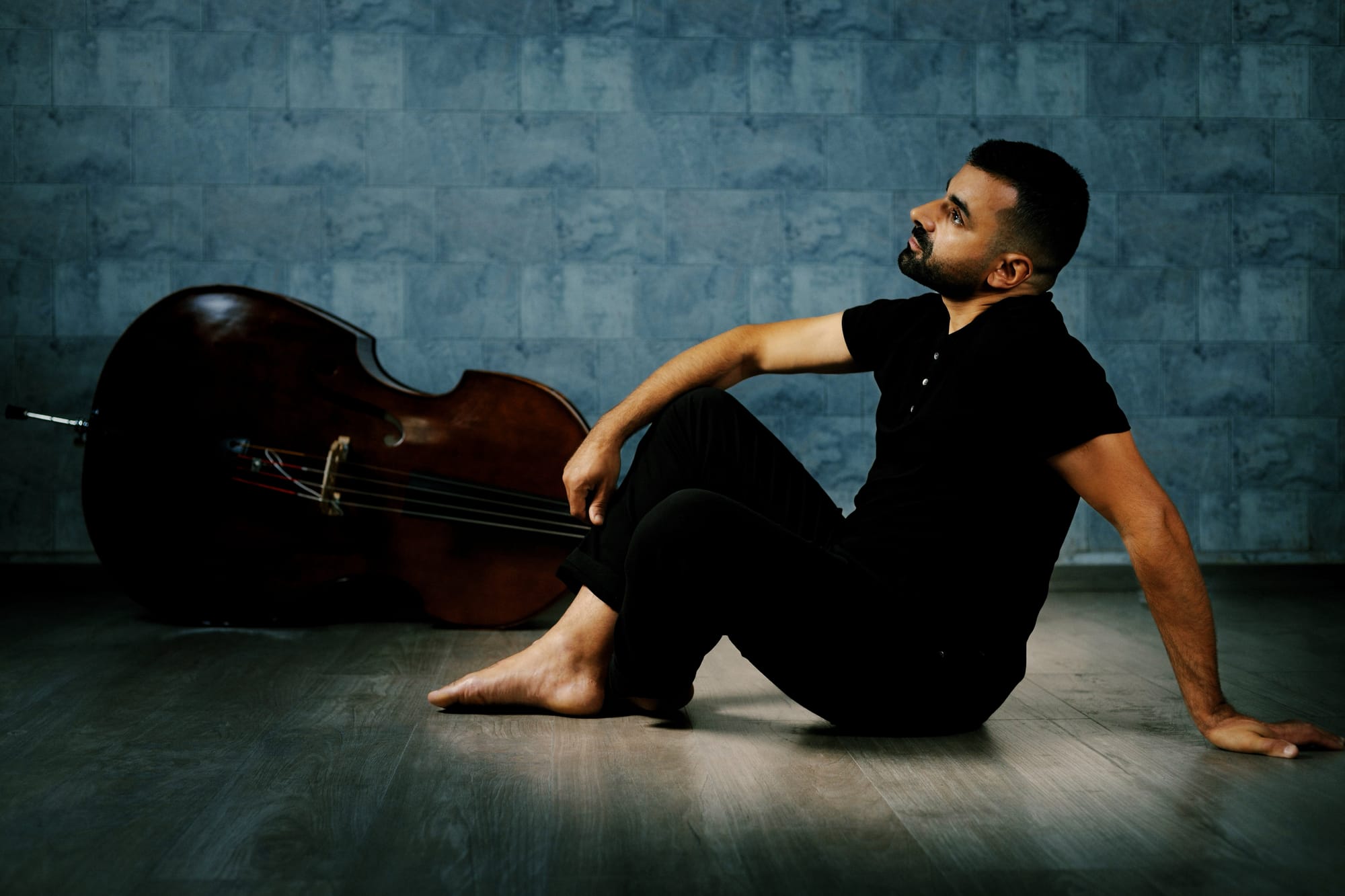
Lawrence: You said something a few minutes ago about the emotional nature of the music. I have a surface-level understanding of Arabic music and the maqam. There's sort of a taxonomy of the maqam based on the emotion it's meant to evoke. Am I saying this correctly?
Marwan: Yes. When we study the maqam, we consider it an emotional state. For instance, some maqams express specific emotions, and you must express them that way. You can't be happy when you're playing certain maqams—the technique, the sensation, everything has to be sad, for instance, or happy.
Lawrence: It's like method acting.
Marwan: Yeah, it's very close to acting. That puts you in an emotional state, and the closer you get, the more music comes out of that maqam. It is not only sad; for instance, we use pentatonic scales for different types of music, like dance or African music. And to express joy—some maqams are meant for specific emotions.
Lawrence: Is there an analogy you can draw into Western music?
Marwan: I don't know. In classical music, it's completely different. The type of emotion in classical music is very different than what Arabic music would associate with. Classical music is beautiful, and there is emotion in, say, the movements and the tempo changes, but Arabic music is different than that. It's based on improvisation, the length of the notes, and the groove—like repetition through grooves that get you to a trance mode. Arabic music is very repetitive. It's very melodic and vertical. There's no harmony. The harmonies are within the melody. Like harmonies, sometimes they have two lines, but we never sing horizontally, as in classical music.
Lawrence: Do you know why the music evolved that way?
Marwan: It's essentially the instrumentation. The instruments are not chordal, and Arabic music is usually played in single lines. We don't have pianos. The closest we have is this string instrument called the qanun. It has a lot of strings—it's like a piano without the keys, and you play it with sticks. That's the only chord instrument built at the time. But they don't play chords—that instrument plays the melody. Everybody plays the melody.
The forms are very interesting in Arabic music. The repetition is heavy, but it's never boring. It's like you go and repeat this section, then you go to this section, then to the other section, then back to the first one, then to the second, then to the fourth. There are different forms of Andalusian music in Middle Eastern music because of various styles. Where I come from, it's more of a North African tradition, influenced by the Spanish, like Andalus, and influenced by African music from Mali, Morocco, and Algeria.
Respect and Break
Lawrence: Tunisia has been such a crossroads for hundreds and thousands of years, not even modern history—just everybody came through Tunisia on the way to other parts of Africa and the Middle East or Europe. It's so fascinating.
Marwan: That's the concept the album title is dedicated to. Bab Bhar means "The Gate of the Sea"—we're a little of everything. We had Maltese, we had Sicilian living there, we had Jews, we had Black Africans—we are everything. Everybody brings their recipes, food, and traditions to a small place, but it's still Tunisian. Tunisia is still one country, but within it, you feel the history, and you feel it deep inside.
Lawrence: The song that opens the album organically integrates these strands and traditions. It's not showy in terms of exoticism, but it feels original. I love that coda section where the rhythm comes in towards the song's end—those Tunisian rhythms in a Western context. Having the trap drum set play those sounds is effective.
Marwan: Yeah, that initially came to the song "Ajmiya." Ajmiya in Tunisian means foreigner. That song was dedicated to the Black Tunisian community, which originally immigrated from Mali and sub-Saharan countries. They have their musical traditions that they bring with them.
It is the same in Morocco, Algeria, and Tunisia, but with different names. Morocco has Gnawa music, Algeria has Diwan, and Tunisia has Stambeli. The repertoire is very similar. but the sound in each country is different. The way of playing qraqeb [percussion instruments] for the rhythms is different.
I tried to imitate the sound of the gimbri, a three-stringed instrument, on the walking bass and the bass lines. I used something like shakers in the intro to make the strings sound weird. I put them right under the bridge of the bass. Then, I had to change the tuning to imitate that plucking. I don't play the upright bass the usual way.
After studying jazz for many years, you know what's good, fits, and is tasteful with this music without breaking the tradition too much. It's a nice way of adding your heritage. I don't say, "Oh, this is jazz." Jazz is part of me. I'm still learning a lot from my peers and mentors while developing my heritage. That's how this idea for that song came about.
Lawrence: How do your collaborators and the other musicians you worked with on this record react to these influences? Did you have to find musicians who were familiar with your traditions?
Marwan: Yes, I was looking for musicians who play similar music to what I do and have that ear—the openness and willingness to learn. Whenever we worked on something, I would share a few influences and records with the musicians to show the sound I like. Also, I didn't put a lot of restrictions on them because restrictions tie the music. I wanted the music to sound honest through the compositions and how we felt as instrumentalists.
I'm seeing a lot more musicians embrace Arabic music. Some great American musicians play Arabic music, which fascinates me. I didn't expect to find good American Middle Eastern traditional players when I moved here. They grew up in America, so how is this possible? European musicians are not as good at this. There is a lack of culture, a lack of emotion. But here, they've got it.
Lawrence: Do you have a theory of why that is?
Marwan: I think because they see the beauty in Arabic music, they know the point of it, and they just learn it from its roots, and they stick to the tradition. They get the meaning of that music. Other people just see it as cool, and that's it. But here, I saw these musicians' depth; they fully understand how this music works.
I want to collaborate more with these musicians. I might focus on the Arabic side for the next album, bringing more Arabic sounds rather than just a jazz quartet with a few spices.
I'm still trying to be myself. For example, sometimes, I speak three languages simultaneously. If I speak Tunisian, I sometimes jump into other languages without noticing. So maybe I'm trying to speak my language and let people understand those jumps and go with it. That's the point.
It's like when you think of Wayne Shorter playing Arabic music. What does that sound like? How do I maybe take those elements of composition and use them in an Arabic context? Respecting the forms but breaking the rules—respect and break. So that's kind of the game of the composition that I'm doing.
Follow Marwan Allam on Instagram and YouTube. Purchase Marwan Allam's Bab Bhar on Bandcamp and listen on your streaming platform of choice.
If you enjoyed this article you'll also like these:
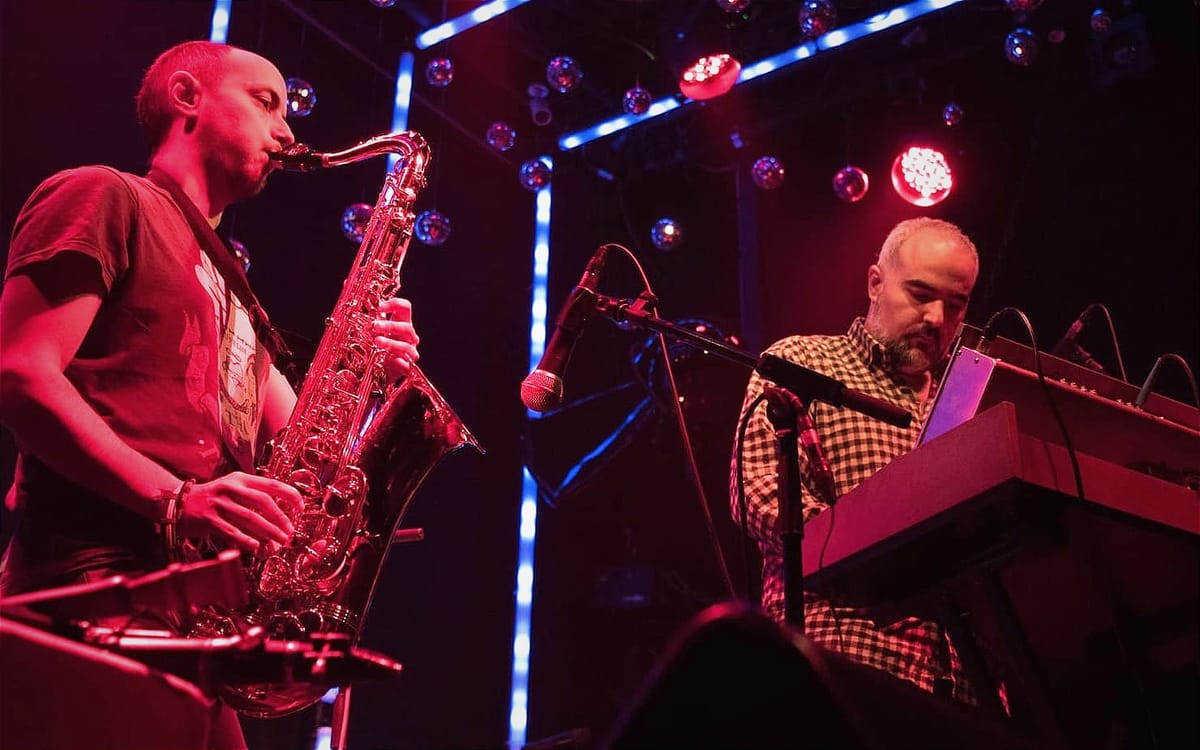
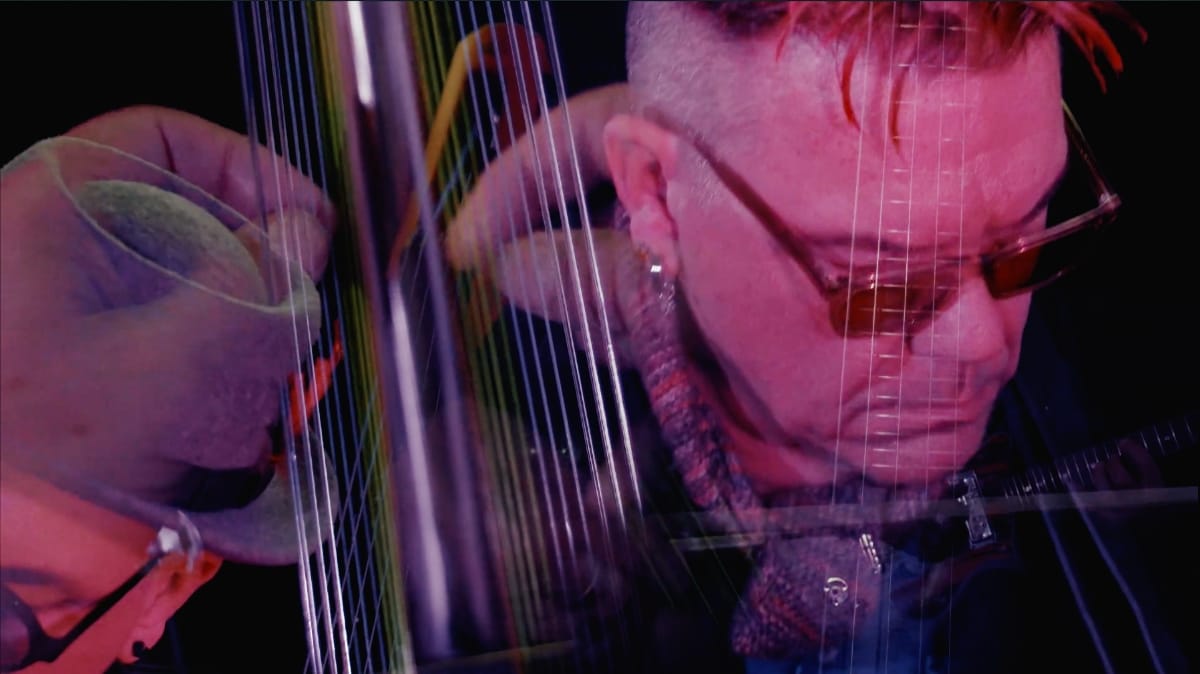


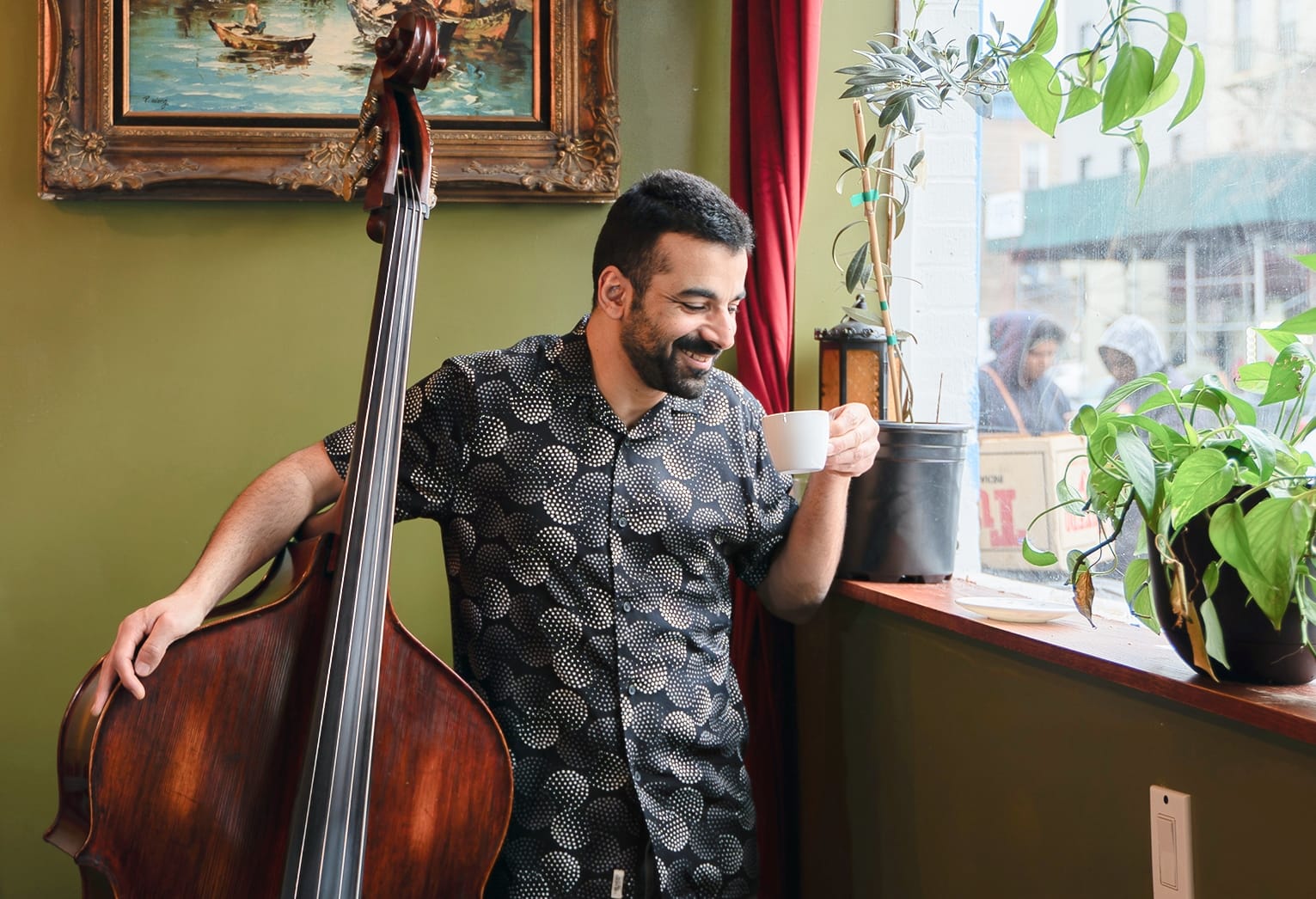


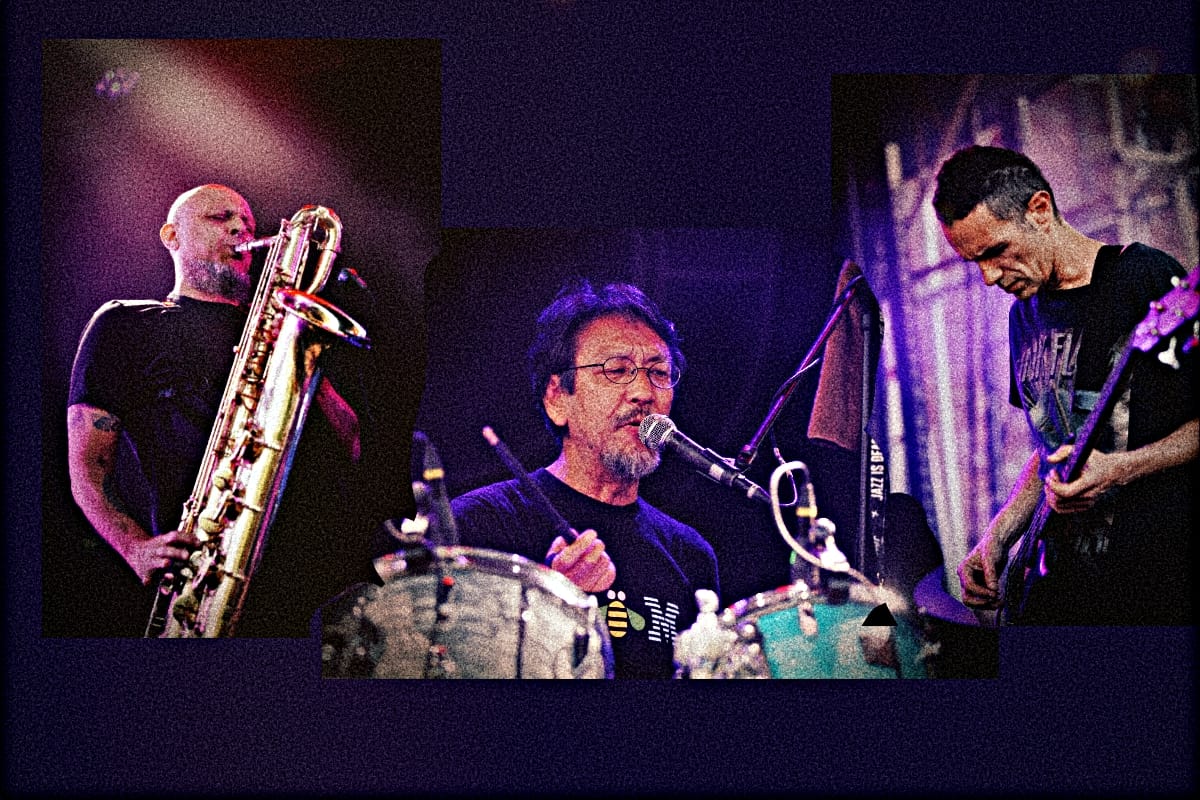
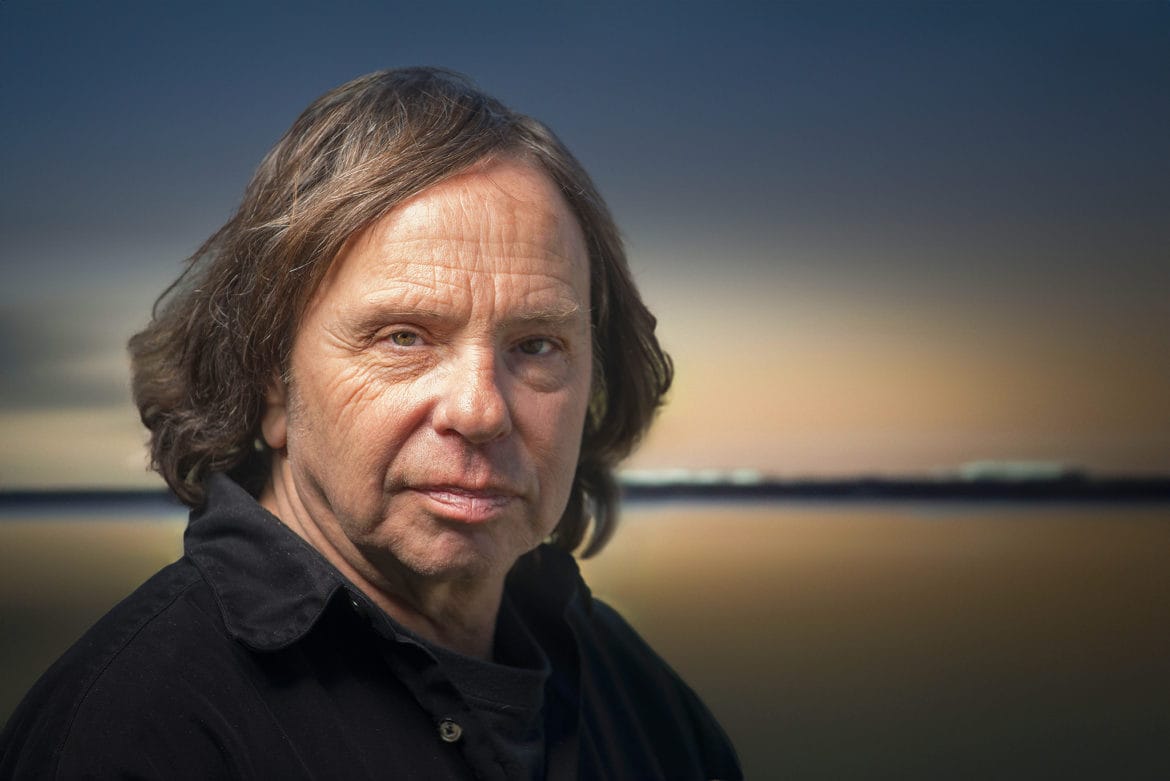

Comments